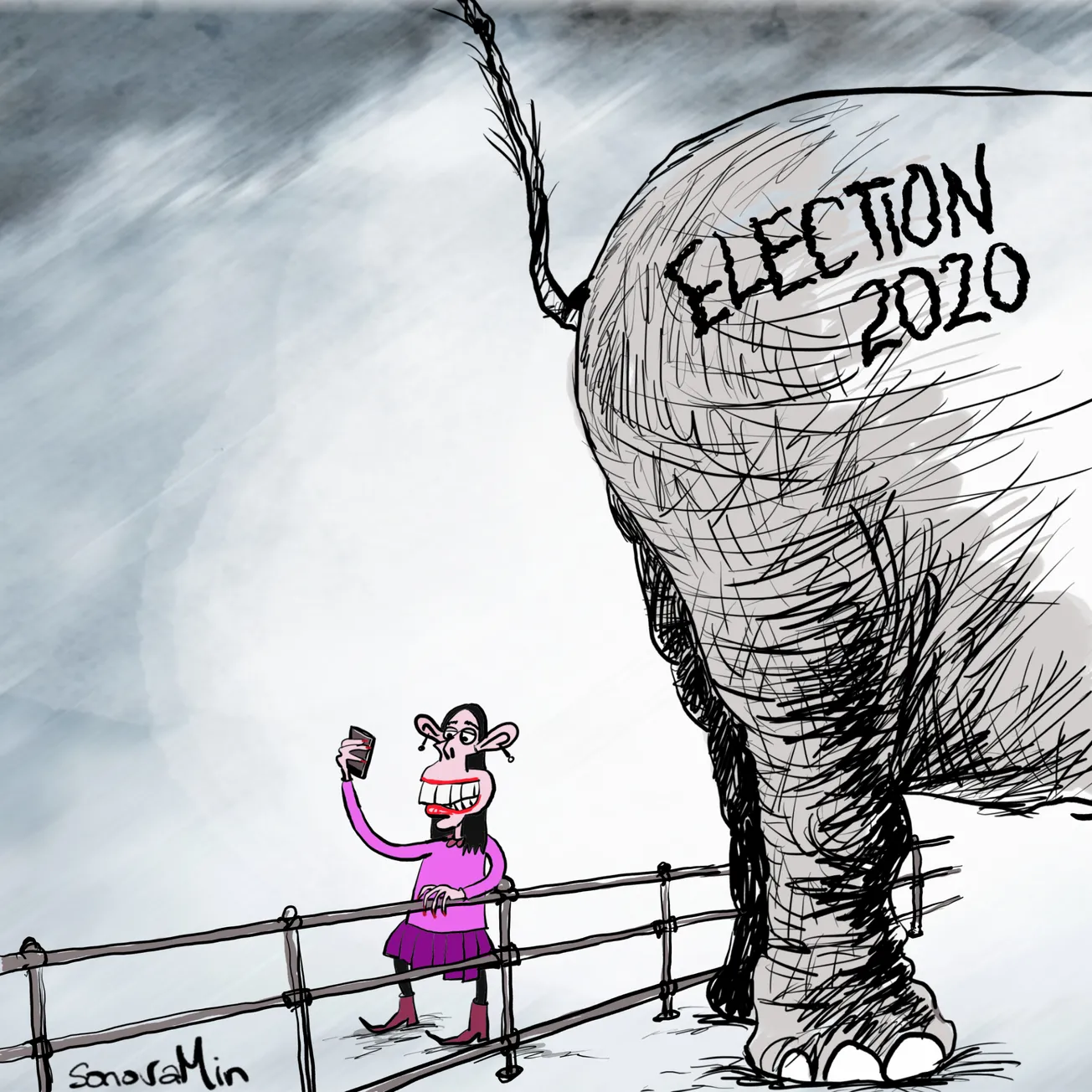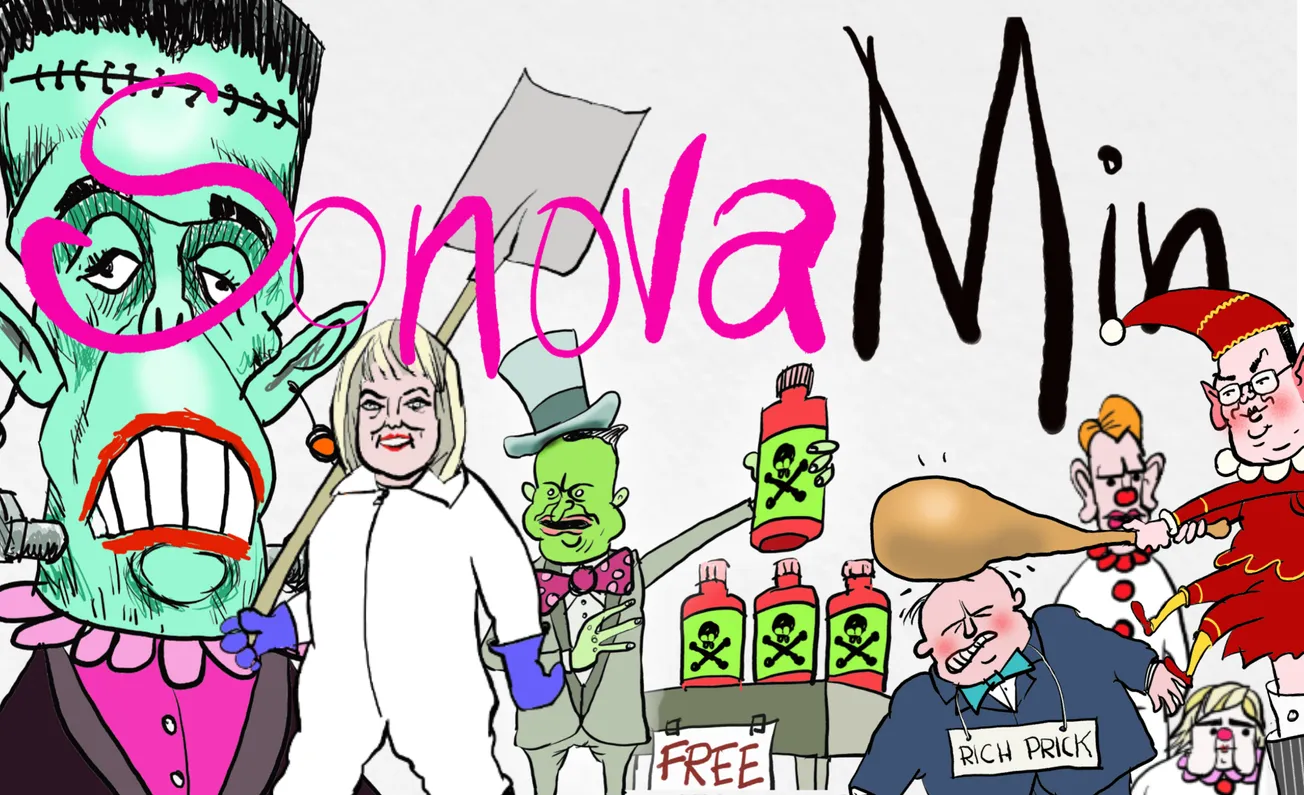Table of Contents
Sir Bob Jones
nopunchespulled.com
Despite the polls I have a gut feeling the election will be a close-run race.
The Nats have taken a beating thanks to MP scandals plus the party’s extraordinary decision to pluck as their leader, an obscure MP, who in two terms had never made a mark.
But with politics, memories are short and now with the obvious leader finally installed, it’s a new ball-game.
As the great Angelo Dundee once said to me, the critical key to win in competitive activity, be it sport, politics or commerce, is to set the agenda. Well, Judith’s certainly done that since gaining the driver’s seat. Furthermore, Jacinda’s playing into her hands by refusing to issue any policy announcements on the nonsensical grounds that she’s concentrating on the COVID issue. Doing what? Is she in a laboratory working on a vaccine?
It’s no secret I prefer Labour politicians. There’s a good reason for that, namely they’re mostly much more interesting people.
In government they do bold things. Past Labour governments set the framework for our broadly successful nation.
The first created our welfare state. The Lange government established our successful market economy.
Often overlooked is the Nash government’s huge contribution, in erecting tariff walls resulting in a rapid creation of home-grown industries.
And it was a Labour government, and notably Roger Douglas, who three decades later tore them down, ensuring that the most economic (which turned out to be quite a large number) survived and prospered.
The problem with Labour governments however, is their cornucopian approach to expenditure and their faith in the state’s ability to do stuff it can’t. This can manifest itself in harebrain ideas.
For example; the Clark government’s announcement of an unemployed artists benefit. I was outraged and per chance, the following evening at a function, encountered Judith Tizard, the Junior Minister responsible. The following exchange ensued.
“Judith,” I protested. “There’s no such bloody thing as unemployed artists; only unsuccessful ones”.
“Look it’s trivia Bob. Our people (the public servants) assure me they’re only anticipating about 10 applicants”.
From memory, two months later the applicants list, nearly all from the East Coast, hit 20,000. They were indeed artists; bullshit artists. Anyway, the scheme was abandoned.
National governments sole raison d’etre is to prevent Labour governments. They are stolid and sound, but uninspiring.
They can point to only two game-changing achievements.
The first, by the Holland government, in line with their expressed goal of a home-owner democracy, was their family benefit capitalisation scheme enabling state house occupants to buy their home. This built a much bigger middle-class, a necessary foundation for a successfully functioning society. It should be resurrected and was a huge achievement.
The second was the Bolger government’s introduction of voluntary unionism.
Offsetting that desirable action was that government’s lumpen acceptance of the Reserve Bank Act which caused devastation and mass migration.
The incoming Clark government, and notably Michael Cullen and it may surprise you, Jim Anderton, understood that and immediately reversed the Act’s high exchange rate and high interest rates strategies. Two years later the economy went into growth mode.
The Key government copped two major crises; first the international Bank collapse, then the Christchurch earthquake. The rebuild was largely paid for by insurance and boosted the economic statistics.
The Banking crisis was simply ridden through. It was a laissez faire government which matched the nation’s mood and thus politically, was highly successful, albeit uninspiring.
It may well be the electorate opt for National’s safe pair of hands management in the economic disaster days looming. Conversely, they may feel the need for radicalism. Either way, I’m convinced it will be a close-run race, decided by the fate of the three key smaller parties.
I’ll deal with those in my next offering.
If you enjoyed this BFD article why not share it?







